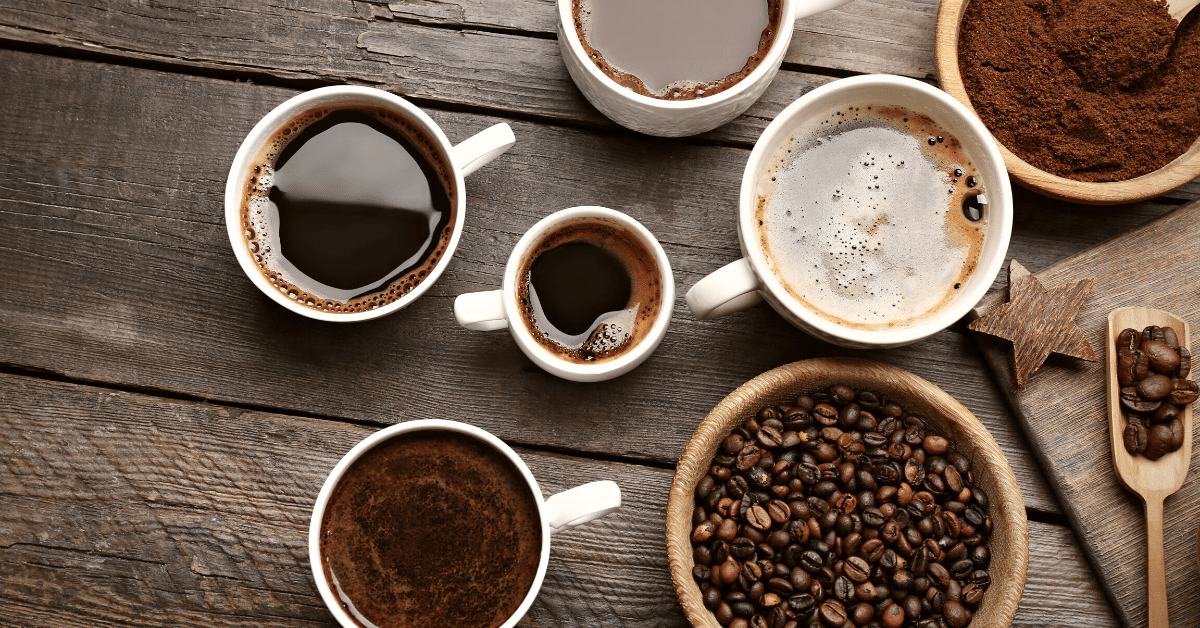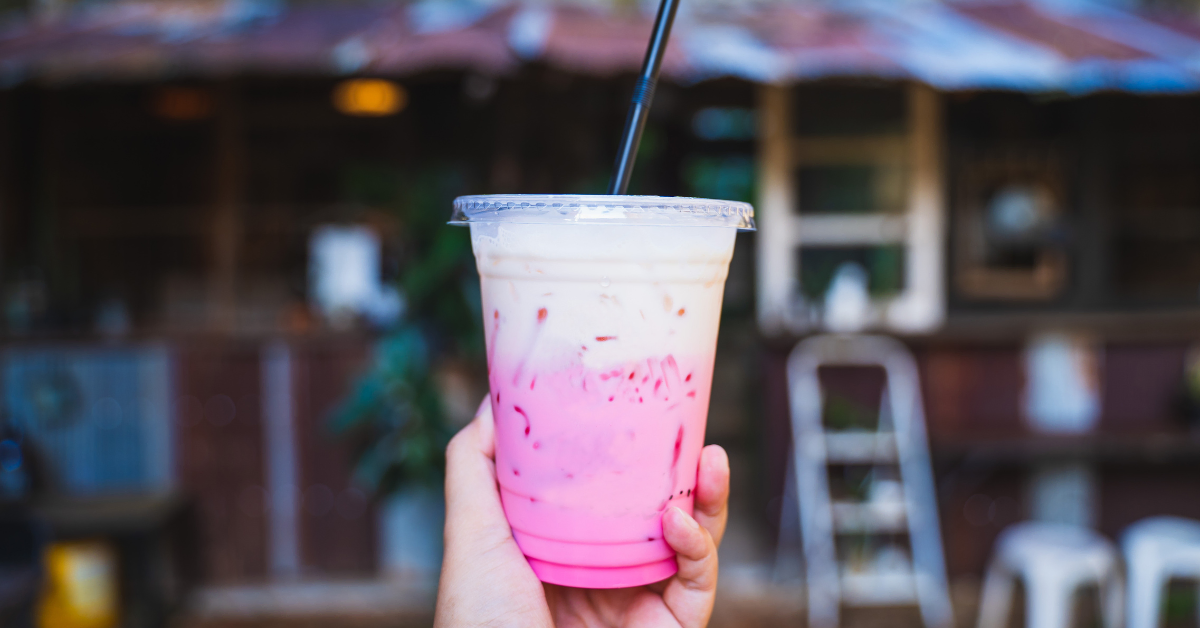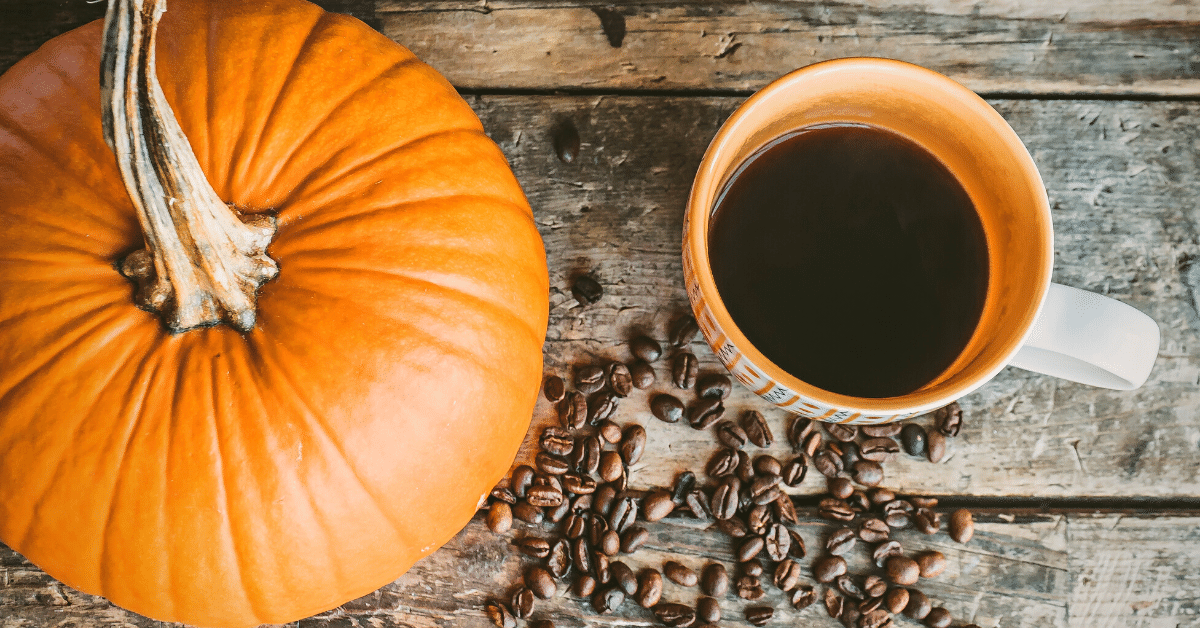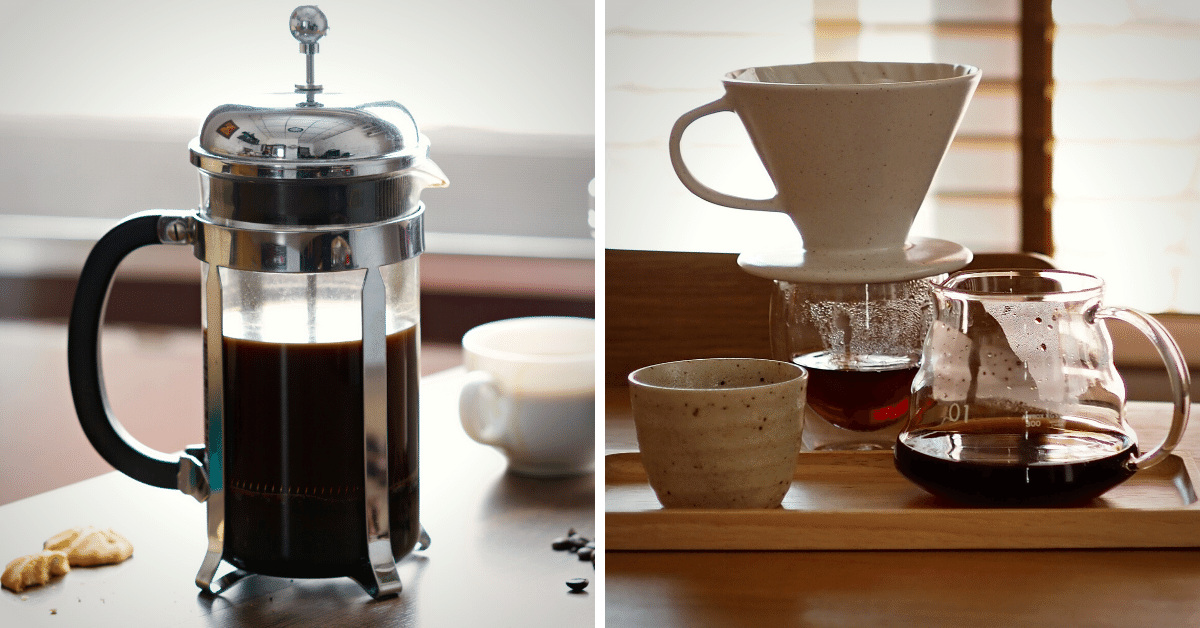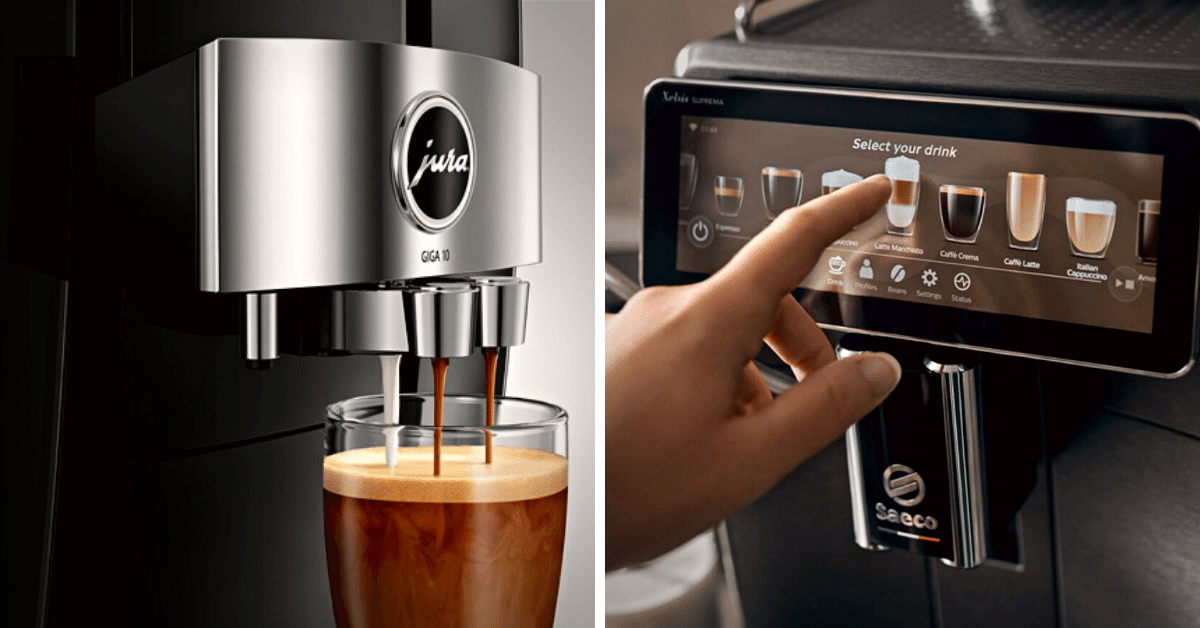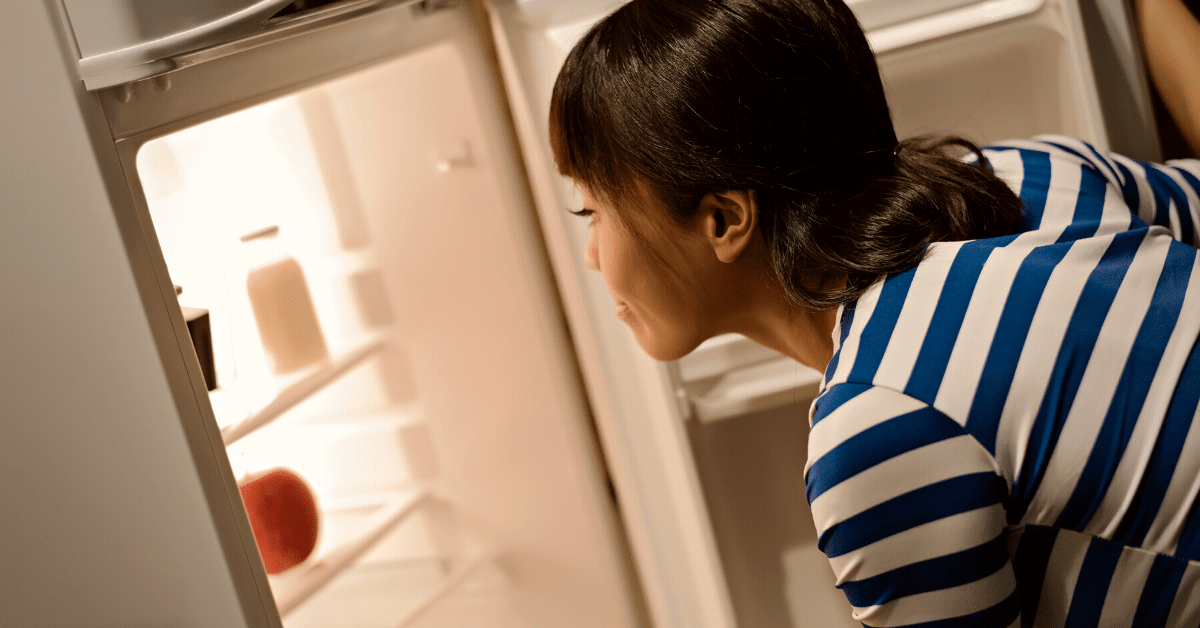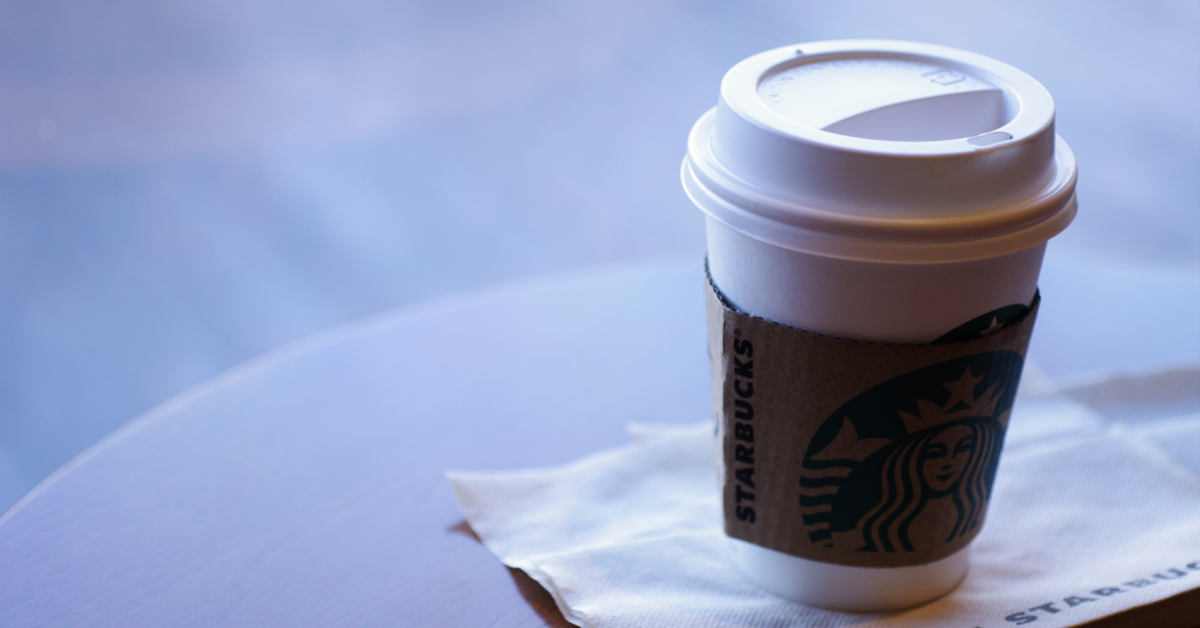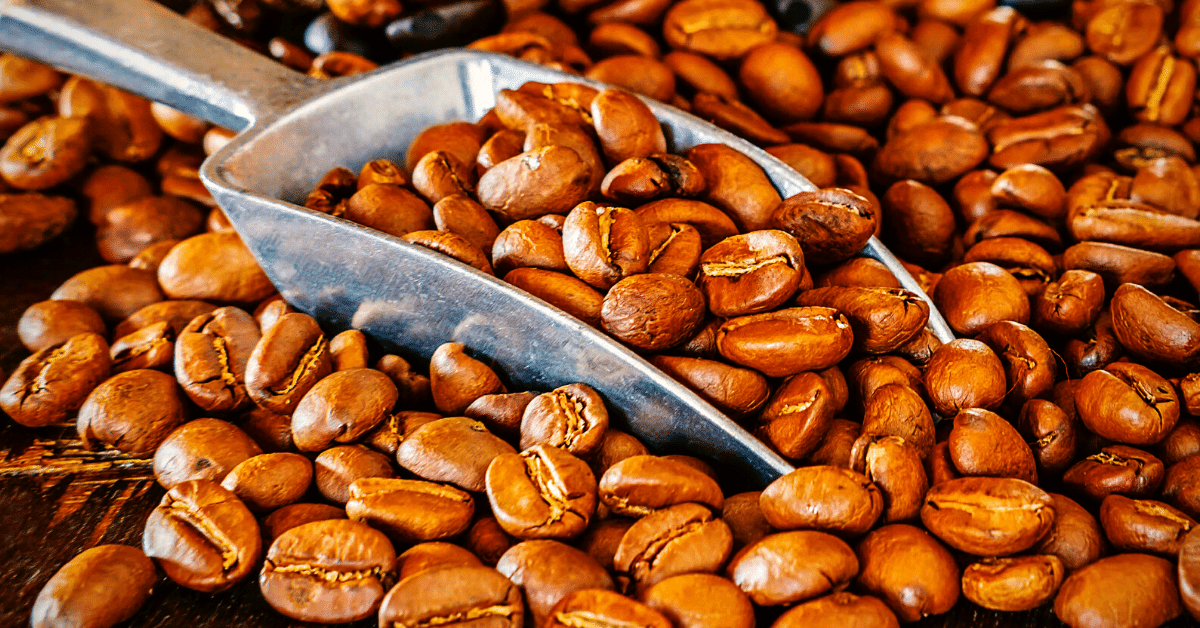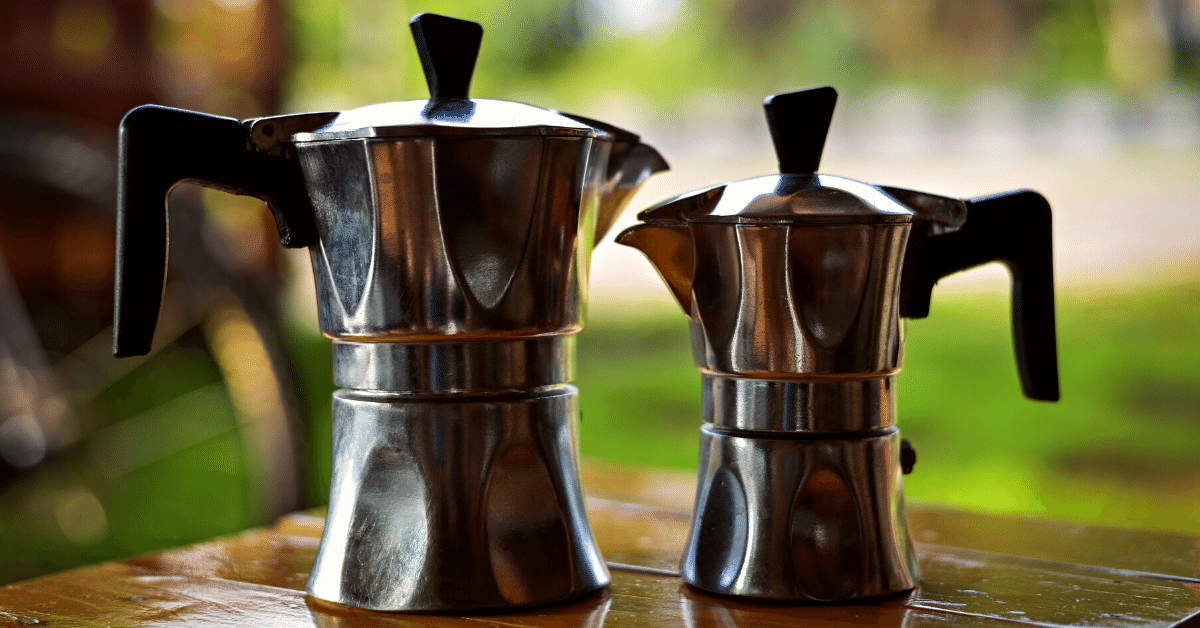What coffee has the most caffeine? Check out our guide to the strongest coffee and find the perfect brew for your morning caffeine kick.
What coffee has the most caffeine?
That depends.
There are a lot of factors that go into how much caffeine a coffee will have.
From the type of bean to the type of brew, it all has an impact.
In this article, we’ll explore the different factors, and I’ll explain how each one changes the caffeine content of coffee.
Let’s dive right in!
What Coffee Has The Most Caffeine
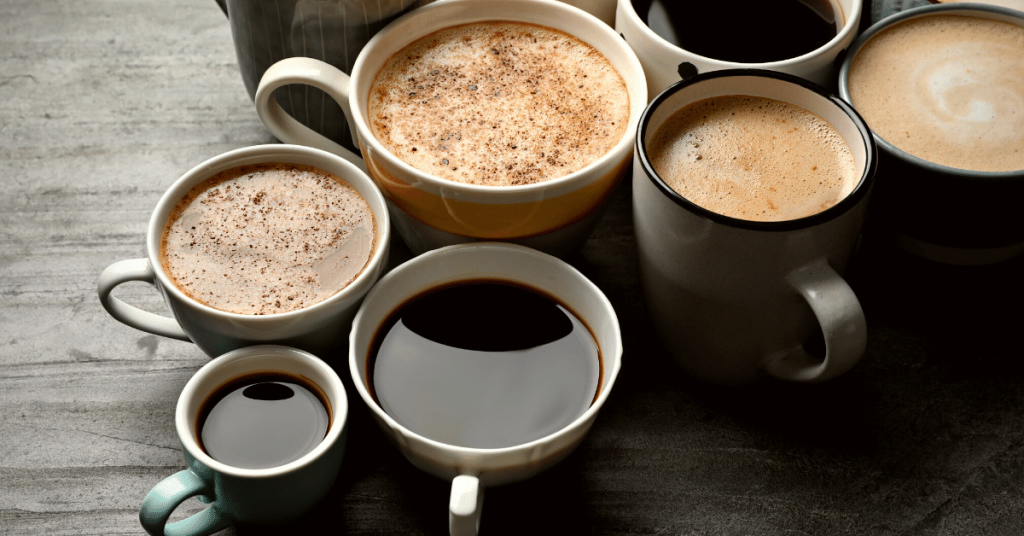
Caffeine content depends on various factors such as:
Before I explain each factor in detail, here is a quick overview so you can easily choose coffee with the most (or least) caffeine content when you’re in a hurry.
| Most Caffeine | Least Caffeine | |
| Beans | Robusta | Arabica |
| Roast | Light Roast (by volume) | Dark Roast |
| Grind | Finer Grind | Coarser Grind |
| Brew | Drip Coffee | Espresso |
| Brand | Devil Mountain Black Label | Regular Roasts |
Which beans have the most caffeine?
First things first: the type of beans you choose has a distinct impact on the amount of caffeine that makes it into your cup.
There are two main types of coffee beans around the world: Arabica and Robusta. Chances are you’ve heard of Arabica beans. And you might know that, generally, Arabica beans are better than Robusta coffee beans.
The reason for that is that Arabica beans are tastier and have a smoother profile than Robusta beans.
However, Robusta beans have a higher caffeine content than Arabica beans.
Robusta coffee bean has almost double the caffeine content of the Arabica bean. That makes them a favorite for high-caffeine coffee brands.
IN A NUTSHELL
There are hundreds of varieties of coffee beans around the world. But a general rule of thumb is that any type of Arabica bean will have much less caffeine than any type of Robusta bean.
How does roast level impact caffeine?
I know this might not sound right, but trust me on it: light coffee roast has the same caffeine level as dark-roasted coffee.
As a barista, it always surprised me when someone would say something like, “I better have a dark roast because I need an extra jolt this morning.”
The truth is that caffeine stays pretty stable throughout the roasting process. So both light roast and dark roast beans have similar amounts of caffeine.
However, that’s not to say that it’s always the case. In fact, how you measure your coffee has an impact on how much the roast changes the level of caffeine.
Light roast beans are denser than dark roast beans. So, if you measure your coffee in scoops, light roast coffee will have more caffeine. But if you measure your coffee by weight, dark roasts will have more caffeine.
IN A NUTSHELL
The difference in caffeine content between dark and light roast is so minimal you’ll probably not even notice.
Does grind size change caffeine content?
You might be surprised to learn that changing your grind size will change caffeine content.
What you have to understand first is the basics of coffee extraction. Extraction is the process of pulling out the flavor and texture from the beans and into your cup.
Extract too much, and you’ll have a tarry, bitter, and borderline undrinkable coffee. Extract too little, and you’ll be left with a sour, weak, and undrinkable coffee.
When you brew coffee, even if you use a drip machine, you extract coffee.
And the biggest factor in coffee extraction is grind size.
The finer the grind, the more you extract. The coarser the grind, the less you extract.
Caffeine makes its way into your coffee throughout the extraction process.
The more you extract, the more caffeine will end up in your mug.
Therefore, it makes sense that if you grind finer, you’ll end up with a more caffeinated coffee. That’s because you naturally extract more coffee from a finer grind.
Of course, if you balance extraction regardless of the grind size, then the difference in caffeine will be negligible.
IN A NUTSHELL
The finer the grind, the more coffee you extract. The more you extract, the more caffeine you will have in your coffee.
Does the brewing method change caffeine content?
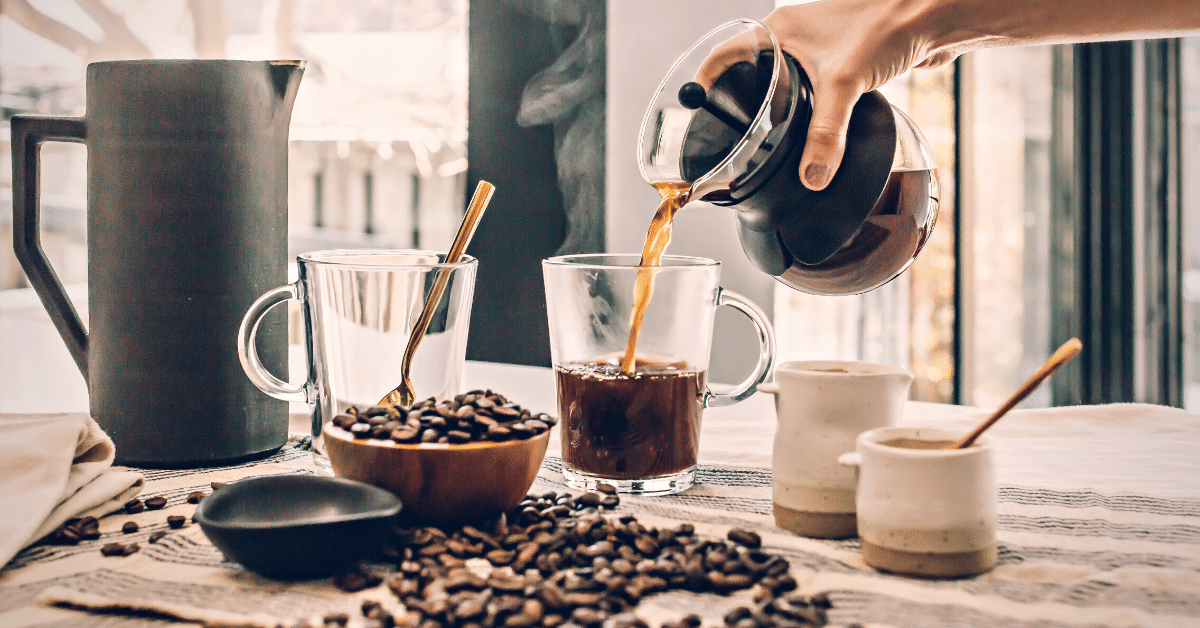
Difference brewing methods produce different amounts of caffeine.
But the reason why might surprise you: it has more to do with volume than it does anything else.
So, a 12 oz cup of black coffee will have more caffeine than a 2 oz shot of espresso simply because there is more black coffee than there is espresso.
But that doesn’t necessarily tell the whole story.
If we measure caffeine per ounce, then espresso has the most. Espresso has about 64mg of caffeine per ounce.
Brewed coffee, on the other hand, has only about 12mg per ounce.
But most of us don’t drink 8 oz of espresso in one sitting. So do with this information what you will.
NOTE
How you brew also changes how much caffeine ends up in your cup. Just like with grind size, the water temperature will change your extraction. Hotter water means more extraction, and as we already learned, more extraction means more caffeine.
What brand of coffee has the highest caffeine?
There are a number of brands out there that claim to be the strongest coffee.
And while many of them do have higher caffeine content than a lot of other brands, it’s hard to pick out which one has the most.
So instead, here are a couple of my favorites:
- Death Wish Coffee. Death Wish uses a blend of Arabica and Robusta beans, which gives their coffee an extra kick. I’m a fan because they retain a lot of good flavors and mouthfeel to the coffees while adding caffeine. Death Wish has about 59mg of caffeine per ounce.
- Devil Mountain Black Label. Devil Mountain Coffee also uses a blend of Arabica and Robusta beans and actually might take the title of highest caffeine content. At about 129mg of caffeine per ounce, this coffee is almost dangerous. Honestly, I wouldn’t recommend a coffee like this to most people. But if you like to chase the caffeine jitters, then, by all means, this is one to try.
Key Points
- Arabica beans have less caffeine than Robusta, but more flavor. The two main types of coffee beans are Arabica and Robusta. Robusta beans have more caffeine, but they lack a big flavor and nuance. Arabica coffee beans have less caffeine but are much more enjoyable to drink.
- Roast levels have a negligible impact on caffeine content. Light roast is denser than dark roast coffee, but you’ll only find more caffeine in your cup if you measure coffee by scoop instead of by weight. Instead, simply choose the roast level based on taste preference.
- Higher extraction means higher caffeine and lower extraction means lower caffeine. Brewing with finer grinds means you extract more coffee, and thus get more caffeine in your cup. But using too fine a grind will also mean your coffee tastes bitter and sludgy. It’s best to strike a balance.
- It’s all about volume when it comes to caffeine. It’s best to measure caffeine by drink instead of by ounce. A cup of black coffee has about 100mg of caffeine. A single espresso has about 64mg. Per ounce, however, espresso has a ton of caffeine.
FAQ
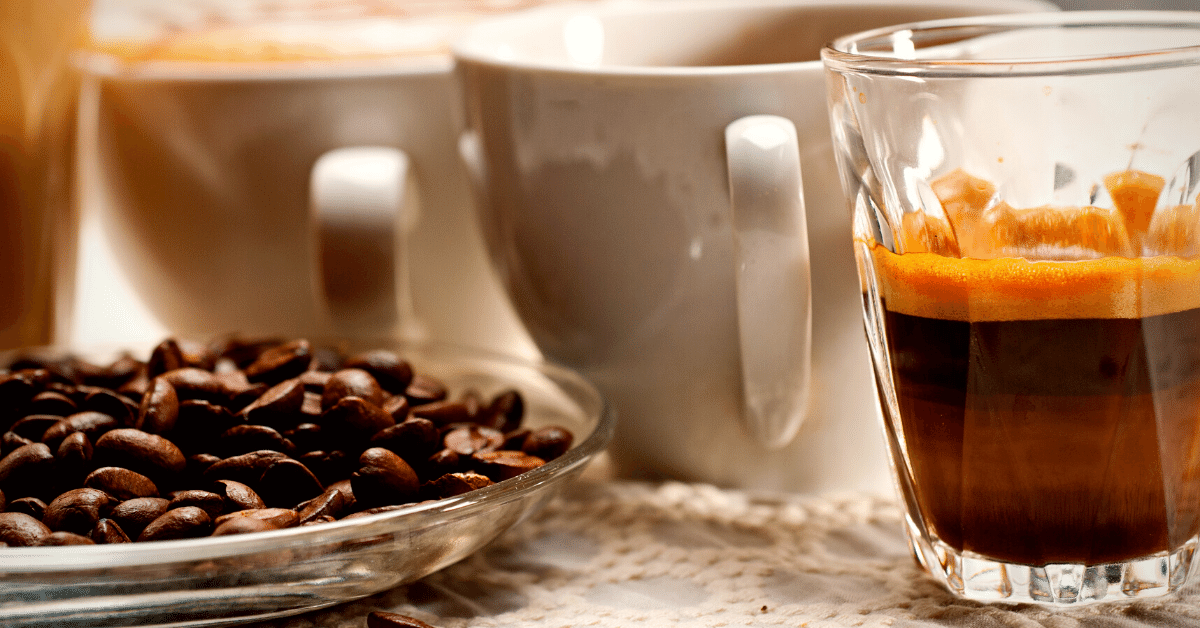
Let’s answer a few quick questions that are still left over.
What coffee is the weakest?
Decaf. I know that might not be your preferred answer, but the reality is that caffeine differences in coffee are really small. If caffeine is a big issue for you, I would recommend finding a high-quality decaf coffee instead.
What coffee has the most caffeine at Starbucks?
The strongest coffee at Starbucks is a Venti Blonde Roast filter coffee. It has about 475mg of caffeine.
The close follow-ups are Clover brewed, cold brew and nitro cold brew coffee.
Does stronger coffee mean more caffeine?
Not necessarily. As a barista, I would tell you that “stronger” coffee simply means a more extracted coffee. Or a coffee that tastes bitter, burnt, or too dry.
My Final Thoughts
The bottom line is that caffeine in coffee has a range. And that that range doesn’t change as much as we sometimes like to think.
The best way to get the most caffeine without changing too much is to buy an Arabica/Robusta blend, grind it pretty fine, and drink a lot of it.
Other than that, I’d recommend switching to drinking double espressos if you’re looking for a high caffeine dose.
Are you still tired after drinking coffee? Check out our article on why caffeine doesn’t affect you and how you can fix it!

